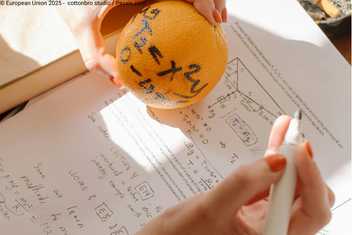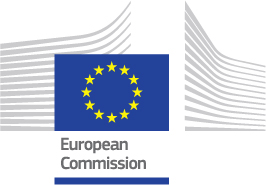Beyond numbers: how mathematics shapes the world
Course details
Mathematics is more than numbers and equations—it shapes the world around us. From technology and environmental science to music and art, mathematics plays a fundamental role in problem-solving and innovation.
This course is designed to help educators bridge the gap between abstract mathematical concepts and their real-world applications. Through engaging examples, case studies, and hands-on activities, participants will learn how to make mathematics more relevant, inspiring, and accessible for their students.
Enrol today and discover how mathematics shapes the world around us!
The course is offered by the European School Education Platform. Visit our website for more information.
Duration and workload
Start date: self-paced
End date: self-paced
Workload: 15-20 hours
This course is based on a version that ran from Monday, 5 May 2025, to Wednesday, 11 June 2025. The original course provided participants with opportunities to interact during a specific active timeframe of 5.5 weeks, exchange ideas and engage in a peer assessment. However, we recognise that not everyone was able to attend during the scheduled timeline.
To make the course accessible to a wider audience, we’ve developed this self-paced format. This version allows you to explore the content and complete the activities at your own pace, whenever it suits you best.
What the self-study format means
- Flexible schedule: You decide when and how to engage with the course materials. There are no deadlines, live sessions, or required meeting times.
- Independent learning: While the original course included discussions and peer reviews taking place in certain days and weeks, this format empowers you to work independently, using the same materials and guidance provided during the initial version. Please note that discussions in the forums and contributions on Padlets will not be moderated, allowing for a fully self-directed learning experience.
- Self-assessment: To replicate some of the reflective benefits of peer feedback, you will be encouraged to evaluate your own work using the provided assessment criteria.
Course competences
The recipient of this certificate has demonstrated proficiency of the following competences according to the digital competence framework of the European Commission's SELFIE for TEACHERs tool:
- Teaching and Learning – Emerging technologies at B1 level
- Assessment – Assessment strategies at B1 level
- Empowering learners – Actively engaging learners at B2 level
- Facilitating learners’ digital competence – Information and data literacy at B2 level
- Facilitating learners’ digital competence – Problem solving at B2 level
For more information about the competences and the proficiency levels see the SELFIE for TEACHERs toolkit.
Target audience
This course is designed mainly for primary and secondary school teachers of mathematics, as well as educators of all subjects interested in integrating real-world applications of Mathematics into their teaching. Whether you specialize in Mathematics, science, technology, or even the arts, this course will equip you with strategies to enhance students’ engagement and understanding of mathematical concepts.
Learning objectives
- Identify real-world applications of mathematics across different fields, making maths more relevant to students.
- Apply mathematical concepts to practical, everyday challenges to develop problem-solving skills in the classroom.
- Explore how mathematics powers technology, including algorithms, data analysis, and cryptography.
- Examine the role of mathematics in environmental science, such as climate modelling and resource optimization.
- Discover connections between mathematics, art, and music to foster interdisciplinary learning.
- Develop critical thinking and analytical skills through hands-on activities and case studies.
- Communicate mathematical concepts effectively to diverse student audiences using engaging teaching approaches.
This content is offered by the European Commission. The European Commission is the European Union's politically independent executive arm. It is alone responsible for drawing up proposals for new European legislation, and it implements the decisions of the European Parliament and the Council of the European Union.

Schedule
- How this course works
- Module 1: Mathematics in everyday life
- Module 2: Mathematics in technology
- Module 3: Mathematics in environmental science
- Module 4: Mathematics in art and music


